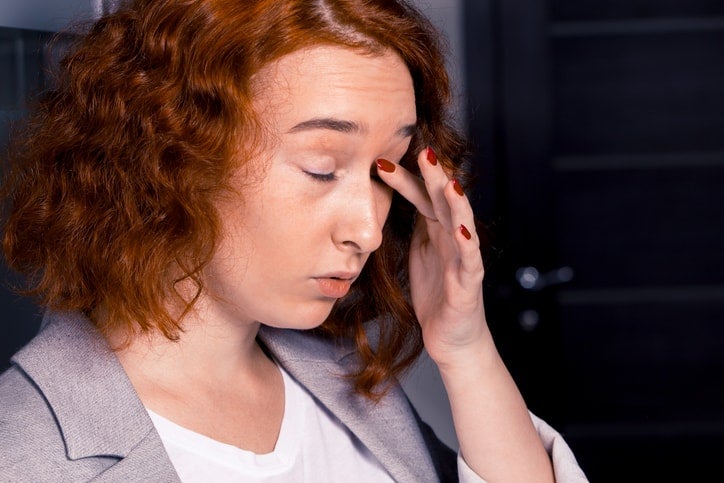-
Dust and your Eyes

Whether it’s an allergic reaction or a speck that gets stuck, some time or another we all have to deal with dust affecting our eyes. That’s why it’s smart to be prepared, and know what to do if dust is causing a problem for you. How do you deal with dust when it comes to your eyes?
Is it an allergy or a contaminant? Sometimes the answer to that question is not very clear cut. Itchy, watery, uncomfortable eyes can mean that you’re allergic to something, or they could mean that there’s a foreign body in one or both of your eyes.
If it’s an allergy to dust, you’ll also experience allergic rhinitis. You’ll sneeze, cough, have a headache from sinus congestion, experience difficulty breathing, and have a runny nose. As to your eyes, allergic conjunctivitis will cause inflammation, watering, itching, and redness. Allergies can come on at any age, but they usually start under the age of 30.
What can you do about allergy eyes? A dust allergy is actually an allergy to dust mites, the microscopic bugs that live in house dust. To lessen your allergies, take steps to control the dust and dust mites in your home. Use allergen-proof bed and pillow covers, wash bedding and stuffed animals frequently, keep the humidity of your house low, vacuum regularly, and use a damp or oiled mop or rag to clean up dust. Reduce clutter, consider removing carpeting, and install a high-efficiency filter in your HVAC. Talk to your eye doctor, who may direct you to take medication, like antihistamines or corticosteroids.
Sometimes the problem isn’t so much the effect dust has on your eyes as it is that you’ve got some dust in your eyes. It’s easy to get dust in your eye, whether at home, at work, or even outside. Whenever it feels like there’s something in your eye, there are several steps you can take to relieve your discomfort.
- First, wash your hands, then inspect your eye. Be careful not to rub it, so that you don’t scratch your cornea, and always keep tweezers and cotton swabs away from your eye. Try to find the location of the object, looking near the eyelids and inside your upper and lower eyelids.
- Try to flush whatever it is out. Fill your hands with clean water and flush your eye a few times, patting dry with a clean towel. Check to see whether you still feel like there’s something in your eye. Often, flushing out your eyes is all that’s necessary to solve your problem.
- If it’s still there, move your eyelids around. Gently pull your upper eyelid over the lower one, rolling your eye upwards. Release and see if the item has been dislodged.
- When you can’t seem to get the dust out of your eye, see a doctor. If the object lodged in your eye is sharp or large, you should seek immediate medical attention, at the emergency room or with your eye doctor. Even if it’s just dust, your eye doctor can help remove it from your eye.
If you’re looking for an eye doctor, Gerstein Eye Institute is here to help. Since 1968, the Gerstein Eye Institute has been providing exceptional ophthalmologic care to patients in the Chicago area. With decades of experience in ophthalmology, our certified professional staff members work hard to provide the kind of personalized care that keeps patients coming back year after year, eventually entrusting the eye health of their children and grandchildren to us as well. To schedule an appointment, call us at (773) 973-3223 or contact us through our website.
-
Get your Eyes Ready for the Summer

People often talk about getting their bodies ready for beach season, but have you ever considered whether your eyes are summer ready? Just as you get your body into shape for summer and take measures to protect it from the sun while you enjoy the outdoors, you can take measures to care for your eye health as well.
- Get the right kind of sunglasses. You know that you need sunscreen to protect your skin from ultraviolet radiation, but you may not realize that UV rays can harm your eyes as well. Even if you’re not directly in the sun, and even if the day is cloudy, wear sunglasses with 100 percent protection against UVA and UVB rays. This will protect your eyes from short term problems like photokeratitis, and long term issues like cataracts and skin cancer of the eyelids.
- Don’t forget goggles in the pool. The chemicals in pool water can hurt your eyes. Of course, you know that chlorine can cause your eyes to feel a burning sensation and get red and gritty, but research indicates that frequent exposure to chlorine can also compromise your corneal epithelium. After you get out of the pool, rinse your eyes immediately with fresh water.
- Other outdoor activities require eye protection as well. You might think of chemical burns as something that happens in a science lab or at a dangerous job, but some common household solutions can be hazardous to your eyes as well. Soap bubbles that pop near your eyes, spray paint, which can blow back into your face while you’re using it, and splashing cleaning solutions can all hurt your eyes. Whenever you’re working with chemicals, wear protective eyewear. It’s also wise to wear eye protection when you are doing activities that could cause foreign bodies to fly into your eyes, like yard work, woodworking, and sports. You can also wear wraparound glasses to protect your eyes from windy conditions.
- Toss on a hat for added assurance. A wide-brimmed hat, especially used in conjunction with sunglasses, can offer another layer of protection against the sun. The hat can provide shade that makes up for the gaps where the sunglasses let UV rays get around their frames and into your eyes.
- Keep your hands out of your eyes. One of the best ways to protect your eyes from communicable disease or infection is to wash your hands frequently and avoid rubbing your eyes. You should also wash your hands carefully if you have to put in eye drops, ointment, or contact lenses.
- Lead a healthy lifestyle. Getting enough sleep, refraining from smoking, and eating a healthful diet are all steps you can take to keep your eyes healthy. Foods rich in vitamins and other nutrients can improve your vision and your eye health, so make sure to fill your diet with fatty fish, fruits and vegetables. Drink plenty of water, because hydration is just as important to your eye health as it is for your overall health, and it’s even more vital in hot weather. If you smoke, quit, to begin to reverse the damage you’ve already done to your eyes. If you don’t smoke, don’t start. Additionally, for optimal eye health, see an eye doctor regularly.
No matter what time of year it is, you can always feel confident trusting Gerstein Eye Institute with the care of your eyes. Since 1968, the Gerstein Eye Institute has been providing exceptional ophthalmologic care to patients in the Chicago area. With decades of experience in ophthalmology, our certified professional staff members work hard to provide the kind of personalized care that keeps patients coming back year after year, eventually entrusting the eye health of their children and grandchildren to us as well. To schedule an appointment, call us at (773) 973-3223 or contact us through our website.
